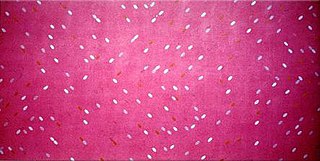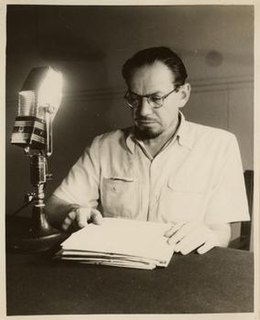A Quote by Gerhard Richter
My work has so much to do with reality that I wanted to have a corresponding rightness. That excludes painting in imitation.
Related Quotes
I believe I am looking for rightness. My work has so much to do with reality that I wanted to have a corresponding rightness. That excludes painting in imitation. In nature everything is always right: the structure is right, the proportions are good, the colours fit the forms. If you imitate that in painting, it becomes false.
Awareness means to listen to me unfocused - alert of course, not fallen asleep, but alert to these birds, their chirping, alert to the wind that passes through the trees, alert to everything that is happening. Concentration excludes much, includes little. Awareness excludes nothing, includes all. Awareness is a state of no-mind. You are, yet you are not focused. You are just a mirror reflecting all, echoing all; see the beauty of it and the silence and the stillness.





































